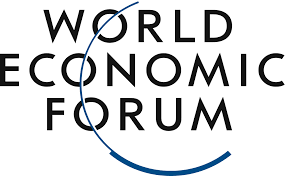World Business leaders taking part in the World Economic Forum job reset have warned that Climate change is a bigger crisis than COVID-19 and that investing in a low-carbon future will drive greater wealth and more jobs. The fault lines they said is in capitalism which has accelerated gaps in wealth, education and job opportunities. They also said “we need to restructure to ensure a “job-full” recovery from the COVID crisis and that governments and central banks are increasingly deciding where money flows saying they must make the right decisions to invest in re-skilling workers for a digital, low-carbon economy According to the summit COVID-19 has caused a jobs crisis but, if we are to recover from the pandemic, two more fundamental crises need tackling: climate change and the nature of capitalism itself.
“The low-carbon revolution will be a booming space for jobs,” said Alan Jope, Chief Executive Officer, Unilever, United Kingdom. Jope said he hopes the recovery from the pandemic will prove a turning point in the battle with climate change, because a greener business can drive both revenues and job creation. According to the European Union, investments in renewable energy could create three times as many jobs as investing in fossil fuels. “One of the most dangerous mindsets in the world,” said Jope, “is to set up a false dichotomy between sustainability and economic growth.” Unilever has saved 800 million euros in sustainable sourcing, while attracting more customers through low-carbon products. A business that is trying to be responsible is a magnet for talent, he said, adding: “We see purpose as a pathway to better profits.”
Environmental and social pressures have exposed fault lines in the structure of global capitalism, which tends to perpetuate inequalities, said Ray Dalio, Founder, Co-Chairman and Co-Chief Investment Officer, Bridgewater Associates – one of the US’s leading hedge funds. “The profit-pursuing system won’t change educational disparity, for example, because profit is a self-reinforcing system,” he said, adding: “Capitalism by its nature tends to create greater wealth gaps.” Dalio pointed out that the wealthiest 40% of US citizens spend five times more money educating their children than the bottom 60%, accelerating inequalities in wealth and job opportunities. “There needs to be a coordinated effort to restructure how the machine works,” he said. Jope agreed the world needs to shift to a more “evolved model of capitalism” to create a job-full recovery. “We must change the measures of success,” he said, criticising the preoccupation with measuring only GDP and profit.
Over half the global workforce will need to re-skill in the future of work, according to the World Economic Forum. Businesses, civil society and governments all have to cooperate in re-skilling their people, said Rania A. Al-Mashat, Minister of International Cooperation of Egypt. This is easier in countries such as Egypt, as its largely young population is tech-savvy. However, as well as reskilling people, governments must invest in the digital infrastructure needed to enable the new generation of technology entrepreneurs to thrive. The minister emphasised the need for building inclusive societies, pointing out that Egypt was the first country in Africa and the Middle East to launch the Forum’s Closing the Gender Gap Accelerator project, launched a year ago.
Governments have an increasingly prominent role in directing financial flows, as the world emerges from the pandemic. The rate at which governments are borrowing and central banks are printing money means that decisions on where money and credit flow are becoming increasingly political, said Dalio. Decisions on state stimulus packages, for example, will have a major impact on job creation. Dalio also hailed ESG (environmental, social and governance) investing as a “very powerful force now.” He does not have high confidence in shareholders putting social good above financial gain, he said, “but with ESG investing and with governments redirecting funds in a totally different way, it’ll happen.”

